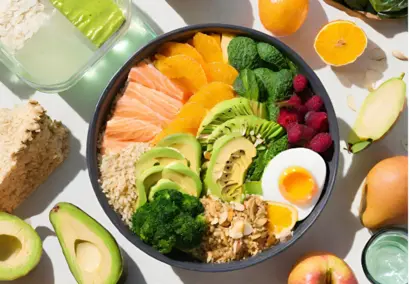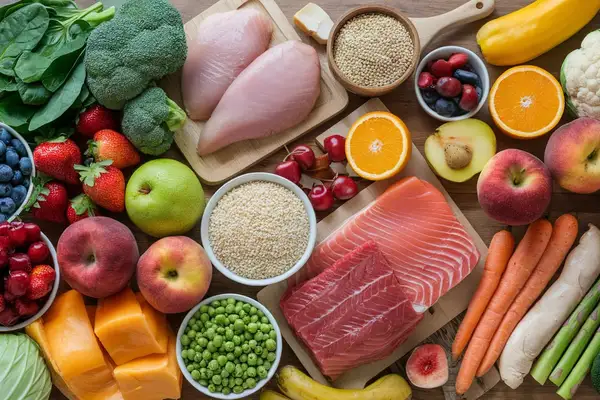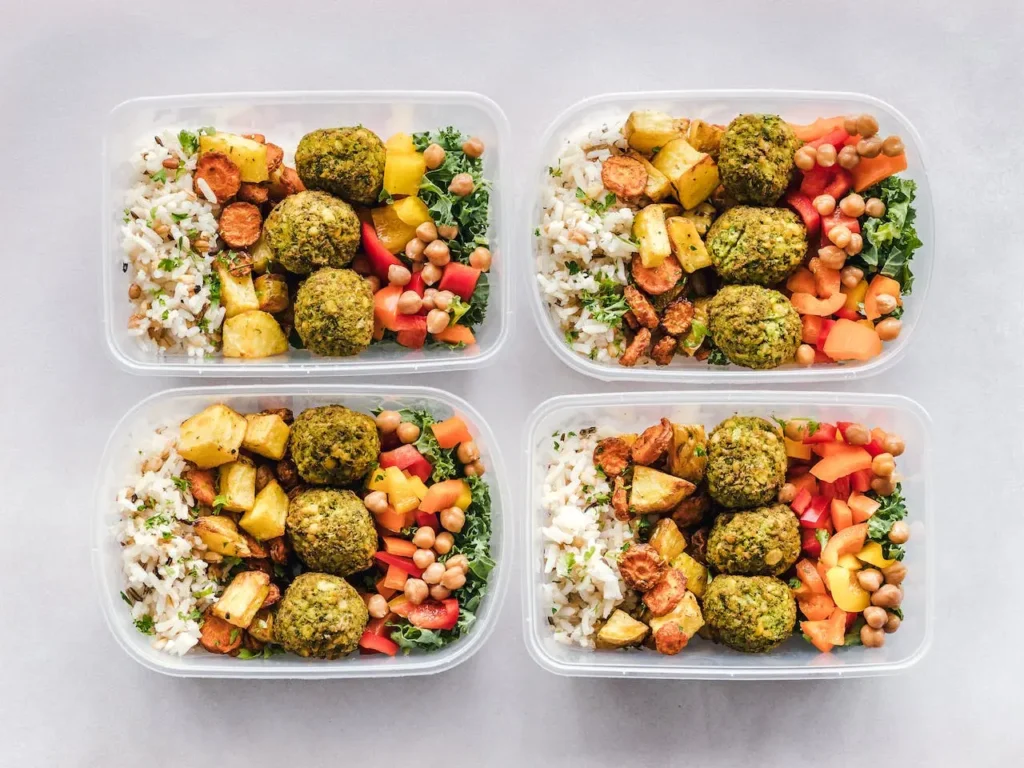What Foods to Avoid If Alkaline Phosphatase is High?

- What is alkaline phosphatase?
- Comprehensive strategies to lower alkaline phosphatase
- What foods to avoid if alkaline phosphatase is high?
- Foods to eat with high ALP (List of foods to lower alkaline phosphatase)
- Causes of high alkaline phosphatase levels
- What level of alkaline phosphatase is dangerous?
- Treatment of high alkaline phosphatase
- Resources
- Conclusion
- FAQs
This post may contain affiliate links, meaning I may earn a commission if you make a purchase, at no extra cost to you. I only recommend products I trust. Thank you for your support.
Understanding the role of alkaline phosphatase (ALP) in the body and how diet can influence its levels is crucial. High alkaline phosphatase can indicate various health concerns, necessitating dietary adjustments.
Here’s an in-depth guide on managing high alkaline phosphatase levels through diet with a list of what foods to avoid if alkaline phosphatase is high and a list of foods to lower alkaline phosphatase.
What is alkaline phosphatase?
Alkaline phosphatase (ALP) is an enzyme found throughout the body, with high concentrations in the liver, bones, kidneys, and bile ducts.
It plays a significant role in breaking down proteins and aiding the process of dephosphorylation, which is crucial for numerous bodily functions, including bone formation and the metabolism of fats.
Comprehensive strategies to lower alkaline phosphatase
Lowering alkaline phosphatase levels typically requires an integrated approach that includes modulation by food (dietary management), lifestyle modifications, and possibly medical treatment, depending on the underlying cause.
Here’s a complete strategy to lower high alkaline phosphatase levels:
1. Dietary Management
- Increase intake of fruits and vegetables: Consume a wide variety of colorful fruits and vegetables to ensure an ample supply of vitamins, minerals, and antioxidants.
- Choose lean protein sources: Opt for lean meats, poultry, fish, legumes, and plant-based proteins to reduce intake of saturated fats.
- Incorporate healthy fats: Include sources of monounsaturated and omega-3 fatty acids like olive oil, avocados, and fatty fish to help reduce inflammation.
- Eat whole grains: Select whole grains over refined grains to help maintain steady blood sugar levels and provide dietary fiber.
- Limit alcohol consumption: Alcohol can stress the liver, so reducing or eliminating it can be beneficial.
- Control phosphorus intake: If bone turnover contributes to high ALP, manage the intake of phosphorus-rich foods.
- Avoid high-fat and processed foods: Reduce the intake of foods high in saturated and trans fats, as well as processed foods that can strain the liver.
- Stay hydrated: Drink plenty of water and limit high-sugar beverages.
- Use herbs and spices: Season foods with herbs and spices instead of salt to enhance flavor without adding sodium.
2. Lifestyle Modifications
- Regular exercise: Engage in regular physical activity, which can help maintain a healthy weight and improve liver health.
- Weight management: Achieve and maintain a healthy weight to reduce the risk of fatty liver disease.
- Avoid smoking: Smoking can worsen liver health and should be avoided.
- Stress management: Practice stress-reduction techniques such as meditation, yoga, or deep-breathing exercises.
3. Medical and Health Monitoring
- Regular health check-ups: Work with your healthcare provider to monitor your ALP levels and assess your liver and bone health.
- Address underlying conditions: If a specific health condition is causing elevated ALP levels, such as liver disease or a bone disorder, follow the treatment plan prescribed by your healthcare provider.
- Medication review: Some medications can affect ALP levels; review all medications with your healthcare provider to see if adjustments are necessary.
- Supplement wisely: Only take vitamin D, calcium, or other supplements if recommended by your healthcare provider.
- Avoid toxins: Reduce exposure to environmental toxins, such as certain chemicals and pollutants, which can affect liver health.

What foods to avoid if alkaline phosphatase is high?
If your alkaline phosphatase (ALP) levels are high, it is often recommended to avoid or limit certain foods that can exacerbate underlying conditions affecting the liver or bones.
Please note that the need to avoid these foods may vary based on individual health conditions and the underlying cause of the high alkaline phosphatase.
Here’s a detailed list of what foods to avoid if alkaline phosphatase is high:
1. Saturated Fats
Can contribute to fatty liver disease and increase inflammation.
- Red meat: Beef, lamb, pork.
- Processed meats: Sausages, hot dogs, bacon.
- Butter and lard: Especially in baking or cooking.
2. Trans Fats
Can lead to increased liver fat and are associated with a higher risk of liver disease.
- Margarine: Stick forms often contain trans fats.
- Packaged snacks: Cookies, crackers, cakes.
- Fast food: Many fried items contain trans fats due to the type of oil used.
3. Alcoholic Beverages
Alcohol is metabolized by the liver and can cause liver inflammation and damage. Even moderate consumption can affect liver enzyme levels and should be avoided if ALP is high due to liver disease.
- Beer: Even light beers.
- Wine: Red and white varieties.
- Liquor: Spirits such as vodka, rum, and whiskey.
4. Refined Carbohydrates
These can cause rapid spikes in blood sugar and may contribute to fatty liver if consumed in excess.
- White bread: Made with refined flour.
- Pasta: Regular pasta made from white flour.
- White rice: Less fiber and nutrients than brown rice.
5. Sugary Foods
High sugar intake is linked to obesity, which is a risk factor for non-alcoholic fatty liver disease (NAFLD).
- Candy: High in sugar with no nutritional value.
- Soft drinks: Soda and other sugary drinks.
- Sweetened cereals: Many breakfast cereals contain a high amount of added sugar.
6. Processed Foods
Processed foods can lead to water retention and increased blood pressure, which can be harmful to the liver.
- Microwave meals: Often high in fats and preservatives.
- Canned soups: Can be high in fat and salt.
- Boxed snacks: Many contain additives and unhealthy fats.
7. Certain Dairy Products
These can be high in saturated fats, which can contribute to liver issues.
- Full-fat cheese: High in saturated fat.
- Whole milk: Opt for skim or 1% milk instead.
- Cream: Heavy cream and sour cream.
8. Some Types of Seafood
Certain seafoods are high in toxins due to water pollution, which can put additional stress on the liver.
- Farmed fish: Some may contain more pollutants.
- Certain shellfish: Such as oysters and mussels, if they are from polluted waters.
9. High Phosphorus Foods
High phosphorus intake can disrupt the balance of minerals in the body and affect bone health.
- Seeds and nuts: Pumpkin seeds, sunflower seeds, and cashews.
- Legumes: Lentils and beans.
- Whole grains: Bran cereals and oatmeal.

Foods to eat with high ALP (List of foods to lower alkaline phosphatase)
For high alkaline phosphatase levels, it’s important to support your liver health and bone metabolism with this list of foods to lower alkaline phosphatase while avoiding foods that can further stress these systems.
Here are the recommended foods to eat with high alkaline phosphatase levels:
1. Lean Proteins
Lean proteins are essential for tissue repair and maintenance without putting additional stress on the liver.
- Chicken breast: Skinless and grilled or baked.
- Turkey: Lean ground turkey or turkey breast.
- Fish: Especially fatty fish like salmon, mackerel, or herring, which provide omega-3 fatty acids.
- Tofu and tempeh: Plant-based proteins that are low in fat.
- Eggs: Particularly egg whites which are high in protein and low in fat.
2. Whole Grains
Whole grains are rich in fiber, which can help maintain a healthy digestive system and support liver function.
- Brown rice: A whole grain alternative to white rice.
- Quinoa: A protein-rich grain that’s also a good source of fiber.
- Oats: Steel-cut or old-fashioned oats, not instant varieties with added sugars.
- Whole grain bread: Look for bread with whole grains as the first ingredient.
- Barley: Can be used in soups and stews.
3. Fruits and Vegetables
Rich in antioxidants, vitamins, and minerals, fruits and vegetables are vital for maintaining overall health.
- Leafy greens: Spinach, kale, and Swiss chard are high in vitamins and low in calories.
- Cruciferous vegetables: Broccoli, cauliflower, and Brussels sprouts support liver health.
- Berries: Strawberries, blueberries, and raspberries are high in antioxidants.
- Citrus fruits: Oranges, lemons, and limes are high in vitamin C.
- Apples and pears: High in fiber for digestive health.
4. Healthy Fats
Healthy fats are important for overall health and can help reduce inflammation.
- Avocado: Rich in monounsaturated fats and fiber.
- Nuts: Almonds, walnuts, and pistachios are good sources of healthy fats.
- Seeds: Flaxseeds and chia seeds are high in omega-3 fatty acids.
- Olive oil: Use extra virgin olive oil for cooking or as a salad dressing base.
5. Low-Fat Dairy or Dairy Alternatives
Calcium and vitamin D are important for bone health, but choose low-fat options to reduce saturated fat intake.
- Low-fat or non-fat yogurt: Look for varieties without added sugars.
- Milk alternatives: Almond, soy, or oat milk can be fortified with calcium and vitamin D.
- Low-fat cheese: Choose cheeses that are lower in fat and sodium.
6. Herbs and Spices
Herbs and spices can add flavor without the need for excess salt or fat.
- Turmeric: Contains curcumin, which may support liver health.
- Ginger: Can aid in digestion and has anti-inflammatory properties.
- Cilantro: May help remove heavy metals from the body.
- Garlic: Has been shown to support cardiovascular and liver health.
7. Beverages
Staying hydrated is key for liver function and overall health.
- Water: The best choice for hydration.
- Green tea: Contains antioxidants that may support liver health.
- Herbal teas: Look for caffeine-free options that can be soothing for the digestive system.
Causes of high alkaline phosphatase levels
High alkaline phosphatase levels in your blood can be caused by a variety of conditions.
Here are some detailed causes of high alkaline phosphatase:
1. Bile Duct Obstruction
Gallstones, inflammation, or tumors can block the bile ducts, causing bile to back up in the liver and leading to increased ALP.
2. Liver Diseases
Conditions like hepatitis, cirrhosis, fatty liver disease, or liver cancer can damage liver cells and increase ALP levels.
3. Bone Growth or Healing
Normal bone growth in children and adolescents, as well as the healing process after a bone fracture in adults, can elevate ALP levels.
4. Paget’s Disease of Bone
This chronic disorder can cause bones to become enlarged and deformed, leading to an increase in bone cell activity and high alkaline phosphatase levels.
5. Osteomalacia and Rickets
Softening of the bones due to vitamin D deficiency leads to increased bone turnover and high alkaline phosphatase levels.
6. Bone Cancers
Cancers that originate in the bone or metastasize to the bone can lead to high alkaline phosphatase levels.
7. Pregnancy
ALP levels can rise, especially in the third trimester, due to the contribution of placental ALP.
8. Hyperparathyroidism
Overactivity of the parathyroid glands can lead to increased bone turnover and high alkaline phosphatase levels.
9. Infections
Certain infections, especially those affecting the liver or bones, can increase ALP levels.
10. Certain Medications
Medications such as anti-seizure drugs, antibiotics, and some treatments for high cholesterol can elevate ALP levels.
What level of alkaline phosphatase is dangerous?
Normal ALP levels can vary depending on the laboratory, but they are generally in the range of 20 to 140 IU/L for adults.
Levels outside of this range (above 140 IU/L for adults) may indicate a problem, but it’s important to interpret these levels in the context of other tests and the individual’s health status.
Here is a detailed explanation of when an ALP level might be considered dangerous:
Slightly Elevated (Above 140 IU/L but less than 3 times the upper limit of normal)
- Might not indicate a serious condition.
- Could be due to conditions like pregnancy, bone growth in children, or healing fractures.
- Temporary elevation could be due to recent meals or minor health issues.
Moderately Elevated (3-10 times the upper limit of normal)
- May suggest liver disease such as bile duct obstruction, cirrhosis, or hepatitis.
- Could indicate bone disorders like Paget’s disease of bone, osteomalacia, or bone cancers.
- Requires further investigation through additional tests and clinical correlation.
Severely Elevated (More than 10 times the upper limit of normal)
- This level is often considered dangerous and indicates a serious underlying condition.
- Likely associated with severe liver conditions such as cholestasis or biliary obstruction.
- May also indicate aggressive bone disease or metastatic cancer affecting the bone.
- Urgent medical evaluation and intervention are typically required.
Treatment of high alkaline phosphatase
Treatment for high alkaline phosphatase levels depends largely on identifying and addressing the underlying cause of the elevation.
Here’s a breakdown of potential alkaline phosphatase high treatment approaches based on common underlying conditions:
1. Liver Disorders
- Lifestyle Changes: Reduction in alcohol consumption, weight loss for overweight individuals, and avoiding hepatotoxic drugs and substances.
- Medication: Use of medications to treat the specific liver condition, such as antiviral drugs for hepatitis or corticosteroids for autoimmune liver disease.
- Surgery: In cases of obstructive liver disease caused by gallstones or tumors, surgery may be necessary to remove the obstruction. (I personally had this surgery to remove gallstones while in Hong Kong)
2. Bone Disorders
- Vitamin D and Calcium Supplementation: For conditions like osteomalacia or rickets, where bone weakening is an issue, vitamin D and calcium supplements can be beneficial.
- Medication: Specific treatments for osteoporosis, such as bisphosphonates, may help manage bone density and lower ALP levels associated with bone turnover.
- Physical Therapy: To strengthen bones and improve mobility, especially after fractures.
3. Bile Duct Obstruction
- Endoscopic Retrograde Cholangiopancreatography (ERCP): A procedure to remove blockages in the bile ducts.
- Surgery: Surgical intervention might be required to remove gallstones or tumors causing the obstruction.
- Medication: To manage symptoms and complications arising from bile duct obstructions.
4. Paget’s Disease of Bone
- Bisphosphonates: Medications that help regulate bone remodeling and can reduce ALP levels.
- Calcitonin: A hormone used to control high calcium levels in the blood and reduce bone pain.
5. Dietary and Lifestyle Modifications
For most conditions related to high alkaline phosphatase levels, certain dietary and lifestyle changes can support treatment, including:
- Healthy Diet: Emphasizing fruits, vegetables, whole grains, lean proteins, and healthy fats.
- Regular Exercise: To support liver health, bone density, and overall well-being.
- Avoiding Alcohol and Smoking: Both can exacerbate liver and bone conditions.
Resources
The following resources and studies discuss the relationship between diet, foods, and alkaline phosphatase (ALP) levels:
- Dietary phytochemical consumption is inversely associated with liver alkaline phosphatase in Middle Eastern adults.
- High-fat diet, Vitamin D deficiency, and plkaline phosphatase.
- Alkaline phosphatase activity in blood group B or O secretors is fluctuated by the dinner intake of previous night.
Conclusion
When addressing the issue of high alkaline phosphatase levels, it is crucial to consider dietary adjustments as part of the management strategy.
Moreover, understanding what level of alkaline phosphatase is dangerous is critical for monitoring and intervention.
Individuals should be aware of what foods to avoid if alkaline phosphatase is high to prevent exacerbating the condition.
Alkaline phosphatase high causes can be multifaceted, ranging from liver conditions to bone disorders, and thus, identifying the underlying cause is essential for tailored dietary recommendations.
The list of foods to lower alkaline phosphatase may include those low in fat and high in fiber, while emphasizing fruits, vegetables, and whole grains.
It’s important to avoid high-fat foods, alcohol, and overly processed items, which can contribute to the elevation of alkaline phosphatase levels.
To effectively manage and potentially lower high alkaline phosphatase levels, individuals should consistently consult with healthcare professionals for personalized advice.
They will provide you with a list of foods to lower alkaline phosphatase, alongside medical treatment for any identified underlying conditions contributing to alkaline phosphatase high causes.
You may want to check out some of these articles as well:
- 7-day meal plan for kidney disease
- How much is Ozempic without insurance?
- What foods to avoid with UTI?
- 7-day low sodium diet meal plan
- Foods to avoid with trulicity
- 7 day meal plan for low potassium diet
- Endometriosis diet plan
- PCOS diet plan for weight loss
- 7-day meal plan for pregnant women
- How to get rid of PCOS belly fat
- 7-day meal plan for gestational diabetes
- 14 proven moringa benefits for men
- Caregiver duties and responsibilities
- Food to avoid on Contrave
FAQs
Is coffee good for alkaline phosphatase?
Coffee, being a caffeinated drink, is generally considered acidic and is often limited on an alkaline diet.
Therefore, coffee might not be recommended for those looking to maintain or enhance their alkaline phosphatase levels through dietary means.
Which fruit is most alkaline?
Among fruits, watermelon is known for its high alkaline properties along with other fruits like citrus, raisins, and ripe bananas.
What does it mean if your alkaline phosphatase is high?
High alkaline phosphatase levels can indicate a variety of conditions, including liver disease, bone disorders, or a blockage of the bile ducts.
High levels might also be a result of increased bone growth or healing from a bone fracture.
Does exposure to sunlight help lower high alkaline phosphatase levels?
Yes, by increasing your exposure to sunlight to boost vitamin D levels can help lower alkaline phosphatase high levels, as vitamin D deficiency can be a cause of high ALP.
Spending time in sunlight can naturally increase your body’s vitamin D production, which in turn might help lower ALP levels.




